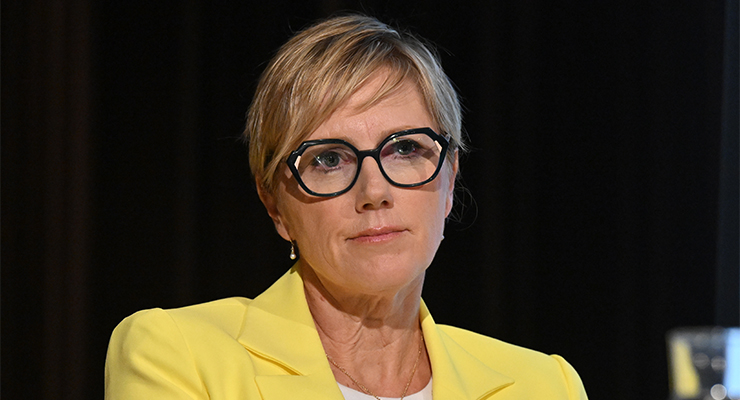
Independents from both houses of Parliament have urged Labor to stop blaming the Coalition for the decaying freedom of information system after the Senate voted to establish an inquiry into the circumstances that led to the former commissioner Leo Hardiman’s resignation earlier this year.
Independent MP for Goldstein and former journalist Zoe Daniel said the government needs to “take a good hard look” at its own record on FOI, after being in power for nearly a year and 30% of FOI requests are spilling over the statutory time limit.
“Every journalist in the country who has ever put in an FOI request will say — this is not news — the so-called freedom of information system has been the reverse for some time,” Daniel told Crikey.
“This government is not living up to the objects of its own legislation introduced when last in office establishing the positions of two assistant commissioners within the office of the information commissioner: the privacy commissioner and the FOI commissioner.”
The Senate will establish an inquiry into the delays that plague the FOI system, and the waning resourcing that led to Hardiman’s resignation less than a year into the job, after the Coalition and the crossbench united to wedge Labor on transparency.
Greens Senator David Shoebridge put the motion to the Senate on Tuesday, which passed despite opposition from Labor 43 votes to 19, and will see the Senate form a committee in early December.
Independent MP for Warringah Zali Steggall said it was hypocritical of the government to vote against the inquiry, when it centred so much of its criticism of the former Coalition government around secrecy.
“Now the shoe’s on the other foot and they are in government, and they are conducting themselves in a similar way. I know that they don’t like that comparison, but actions speak louder than words,” Steggall told Crikey.
“If you are going to continue abusing the FOI system in the same way it’s been abused for the last decade, then it is that same obtuseness and obstruction of accountability and transparency of government decision-making.”
The legal and constitutional affairs references committee inquiry will probe the circumstances that led to Hardiman leaving his post in March citing an inability to achieve the objectives of the legislation.
It will also investigate broader delays in the review of appeals with the information commissioner, the resourcing allocated to responding to FOI applications and reviews, and “the creation of a statutory timeframe for completion of reviews”.
Shoebridge said the broken state of the FOI system is known by everyone who has come into contact with it, and its decay was no accident under a Coalition government committed to secrecy.
“What’s really disappointing is that the new Albanese government has done nothing to fix the problems in FOI, and by refusing to increase funding, they have allowed matters to get even worse,” Shoebridge said.
Hardiman’s short-lived tenure offered a flashpoint for Australia’s worsening FOI infrastructure. In a LinkedIn post earlier this month, he said serious changes were required to ensure timely access to government-held information, but the power to implement those changes fell beyond his reach.
“I have come to the view that I will not be able, in the absence of those changes, to increase timeliness of IC reviews and access in a way which best promotes the objects of the FOI Act. I have accordingly decided the most appropriate course is to resign my appointment,” Hardiman said.
The departure was symbolic of a widely known resource void, former senator Rex Patrick told Crikey, rather than restrictions imposed upon him by the FOI Act.
Patrick has become a vital asset to independents on the upper and lower house crossbenches, who with hemmed staffing allocations have turned to the former senator for pro-bono political consulting services.
“I think [Labor] is developing an allergy to transparency. Transparency is a word that is only shouted from opposition benches. The government knows that the FOI system is broken,” Patrick said.
He said in opposing the inquiry the government was guilty of withholding resources from the statutory positions — the office of the Australian information commissioner, the privacy commissioner, and the FOI commissioner — Labor had itself created.
“This is a government that can fund a $368 billion submarine program, but can’t spend a few million dollars properly funding a critical transparency regime that exists for all Australians to get access to the information for which they have paid for.”








Crikey is committed to hosting lively discussions. Help us keep the conversation useful, interesting and welcoming. We aim to publish comments quickly in the interest of promoting robust conversation, but we’re a small team and we deploy filters to protect against legal risk. Occasionally your comment may be held up while we review, but we’re working as fast as we can to keep the conversation rolling.
The Crikey comment section is members-only content. Please subscribe to leave a comment.
The Crikey comment section is members-only content. Please login to leave a comment.